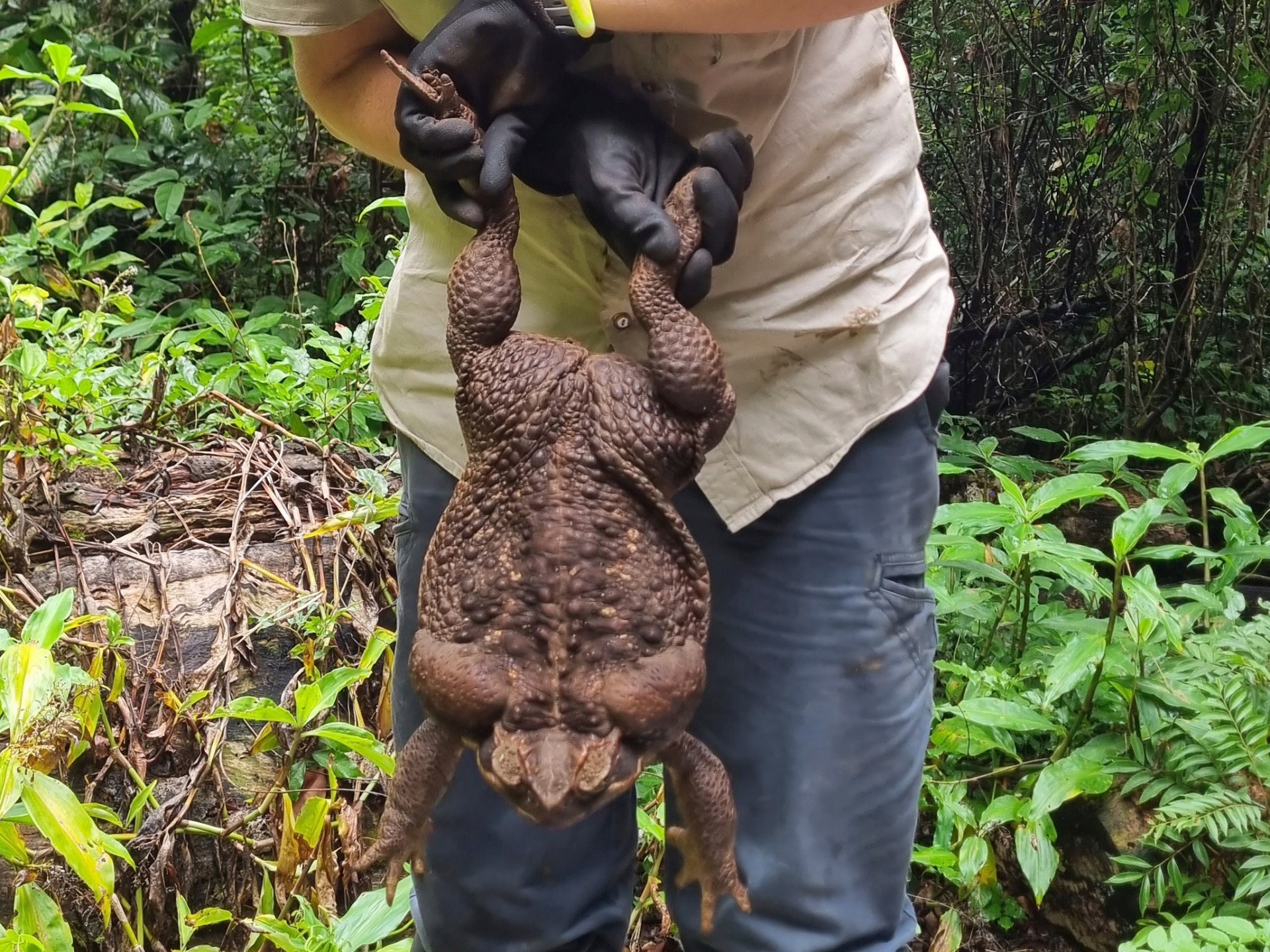Landmark report says invasive species are a major threat to biodiversity and require countries to work together to stop their spread.
Australia has been battling for years to rid itself of the invasive cane toad, but to no avail.
Native to South and Central America, the creature was first introduced into the state of Queensland in 1935 to control beetles that were destroying lucrative sugarcane crops.
It soon escaped into the wild and now, despite regular and sometimes brutal extermination campaigns, has expanded its territory across the northern coast and into the west.
The cane toad is one of more than 37,000 alien species introduced – deliberately or inadvertently – by humans into environments around the world, according to a landmark United Nations report released this week.
In its first assessment since 2019, the UN Intergovernmental Science-Policy Platform on Biodiversity and Ecosystem Services (IPBES) said the number of invasive alien species was increasing at “unprecedented” rates, and that more than 3,500 of these were harmful.
“Invasive alien species are a major threat to biodiversity and can cause irreversible damage to nature, including local and global species extinctions, and also threaten human wellbeing,” Helen Roy, a professor at the UK Centre for Ecology and Hydrology and one of the assessment’s co-chairs, said in a statement.
The report noted that such species spread diseases such as dengue, which is carried by the Aedes aegypti mosquito, and put food supplies and livelihoods at risk, citing the spread of invasive water hyacinth across Lake Victoria in Africa.
It said the global economic cost of invasive alien species exceeded $423bn annually in 2019, with costs having at least quadrupled every decade since 1970.
The world would need to work together on addressing the issue, it said.
“It would be an extremely costly mistake to regard biological invasions only as someone else’s problem,” said Anibal Pauchard from Chile’s Institute of Ecology and Biodiversity and another of the report’s co-chairs. “Although the specific species that inflict damages vary from place to place, these are risks and challenges with global roots but very local impacts, facing people in every country, from all backgrounds and in every community – even Antarctica is being affected.”
Pauchard noted that invasive alien species had been a major factor in 60 percent of the world’s animal and plant extinctions and the only driver in 16 percent of them, adding that “85% of the impacts of biological invasions on native species are negative”.
The report warned that the climate crisis was likely to intensify the impact of alien species such as grasses, which have already been blamed for the devastating fires that swept Hawaii last month.
The IPBES assessment was produced by 86 experts from 49 countries.
Sumber: www.aljazeera.com
 Skip to content
Skip to content

